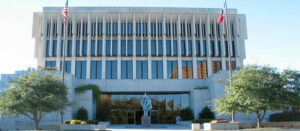This month, interim charges were released for the 84th Texas Legislature by Lieutenant Governor Dan Patrick and House Speaker Joe Straus. As the Texas Retired Teachers Association (TRTA) mentioned in an Línea interior article last week, Texas public education retirees are on the minds of our state legislators right now, and much will be accomplished by committees during the interim that impacts your livelihood.
- You may read the interim charges for all Senate committees in full here en este enlace. To view the Senate State Affairs charges, please click here.
- You may read the interim charges for the House committees in full here en este enlace. To view the House Appropriations Committee, see pages 2-5. To view the House Pensions Committee, see page 47.
The purview of the TRS pension fund falls under the State Affairs Committee in the Senate. Though the charges were not as detailed regarding pensions as they are for the Texas House, Lieutenant Governor Dan Patrick included the following under the Monitoring Charge: “Changes made to the Employment Retirement System regarding member contributions and proposed reforms to the Teacher Retirement System of Texas.”
At this time, TRTA is not aware of any proposed changes to TRS and we do not know what this charge may entail. However, in past sessions, we have faced bills that attempt to turn the pension fund from a defined benefit to a defined contribution (401(k)-style) plan.
It is always important for our members to be aware of the potential for bills such as these to be filed each session. Beginning in 2017, the interim before session will be very telling as legislative committees meet to discuss the current status of the TRS pension fund, which TRTA reported last week has become actuarially unsound in the wake of a dramatic market downturn.
TRTA will continue to advocate during the interim to keep the pension fund a defined benefit, as it is the only real form of retirement security available to our hard-working public school personnel.
In the House, charges pertaining to the TRS pension fund, as well as TRS-Care, are under the scope of the House Appropriations and House Pensions committees.
The interim charges assigned by Speaker Straus to the House Appropriations Committee that are of particular interest to our members are:
5. Monitor the accumulation of available funds within the Texas Economic Stabilization Fund (ESF), particularly in light of the passage of HB 903 (84R). Determine the accuracy of prior ESF revenue predictions, the feasibility of long-term projections for the fund, and the effectiveness of proposed investments strategies utilized by the Comptroller of Public Accounts. Study the impact, if any, on the state’s credit rating when the ESF is utilized at various thresholds including usage for one-time expenses versus recurring costs. Examine potential limits in utilizing the ESF for specific uses, such as addressing unfunded liabilities or retiring state debt.
6. Monitor the implementation of HB 9 (84R) and study updated projections towards actuarial soundness of the Employees Retirement System. Examine issues and costs associated with granting cost-of-living adjustments or “13th Checks” to retired state employees and teachers.
7. Monitor the implementation of HB 2 (84R) as it pertains to the short-term funding provided to TRS-Care. Evaluate additional methods to address the health care needs of retired teachers in light of the current health insurance market, including the feasibility and costs associated with retired teachers not eligible for Medicare remaining on a school district’s health care plan until Medicare eligible.
Straus’ fifth charge addresses the possibility of utilizing the Economic Stabilization Fund (ESF), more commonly known as the Rainy Day Fund, to pay for unfunded liabilities or other state debts. The unfunded liabilities of the Teacher Retirement System of Texas (TRS) are now at $33 billion. While there are other funds in the state that will fall into this category, the TRS pension fund will surely be a part of the conversation legislators have when discussing this issue.
Straus’ sixth charge primarily pertains to the Employees Retirement System (ERS), but also includes an overarching reference to providing permanent raises or supplemental payments (13th checks) to annuitants of state-managed pension funds.
As TRTA reported last week, the TRS pension fund‘s funding period is greater than 31 years. TRS annuitants cannot receive a cost-of-living adjustment unless the fund has a funding period of 31 years or less. In 2007, TRS annuitants received a one-time 13thcheck. While an attempt was made to provide TRS retirees with another 13th check in 2009, ultimately, the payment was not approved.
While the status of the pension fund’s solvency cannot be predicted at this time, this discussion opens the door for conversations with legislators about the possibility of a supplemental check for retirees in 2017.
Straus’ seventh charge directly addresses funding for the TRS-Care retiree health insurance program. As we have discussed numerous times over the past year, the long-term solvency of the program is in trouble. The current funding mechanism for TRS-Care is not sustainable, and drastic changes must be made in order for the program to continue.
This year, Senate Bill 1940 established a legislative study group that will meet during the interim to discuss solutions to the TRS-Care crisis. As of late last week, all members of this group have now been named: Senators Joan Huffman (R-Houston) – Co-Chair, Jane Nelson (R-Flower Mound), and Craig Estes (R-Wichita Falls); and Representatives Dan Flynn (R-Canton) – Co-Chair, Trent Ashby (R-Lufkin), and Justin Rodriguez (D-San Antonio).
Progress on TRS-Care will happen in 2016 and it will happen quickly. TRTA needs your participation in every step of this process! Please stay tuned to the Línea interior for updated information about when the TRS-Care study group will meet and how you can participate.
The interim charges assigned by Speaker Straus to the House Pensions Committee that are of particular interest to our members are:
1. Study the impact that fluctuations in global financial markets have had on public pension funds. Analyze assumed rates of return on investments, structures among asset classes, long-term and shorter-term investment goals, and make appropriate recommendations to ensure the investment structure of public pension funds are meeting fiduciary responsibilities.
2. Examine Texas pension funds’ compliance with Governmental Accounting Standards Board (GASB) Financial Reporting Statements 67 and 68, and identify the effect the reporting requirements are having on the state’s pension systems.
4. Examine the fiscal and policy impacts of structural reforms that would increase state public pension plans’ ability to achieve and maintain actuarial soundness. Evaluate the feasibility, costs, and benefits of utilizing one-time funding increases to reduce or eliminate unfunded liabilities.
5. Evaluate the investment performance benchmarks utilized by the state’s pension funds and the impact portfolio diversification and short- and long-term market assumptions have had on achieving expected investment returns. Analyze the fee structure and investment strategy for various investment classes to ensure the costs are reasonable and competitive versus other large public and private pension trust funds.
Charges one and five refer to the fiscal management and investment oversight of the pension fund. Charge two references how state pension funds match up with the requirements issued by the Governmental Accounting Standards Board (GASB). At this time, TRS has a funded ratio of 80.2 percent, which is considered healthy by GASB standards.
Charge four will address the unfunded liabilities of state pension systems, and like charge five for the Appropriations Committee, TRS will be an important topic of discussion for the Pensions Committee.
TRTA will continue to advocate that the TRS pension fund is following a distinct pathway to solvency, which will lead to 100 percent full funding and actuarial soundness. The Legislature’s support is vital to this plan. In 2013, Senate Bill 1458 established the means that will lead to the success of this goal. TRTA will continue to ask the state to maintain its contribution rate of 6.8 percent of active educator payroll.
TRTA members can stay tuned for additional updates about these charges and what they mean for your retirement benefits and the future of TRS.
Gracias
Protecting your retirement benefits is one of TRTA’s top priorities, and your participation makes all of difference! Be sure to stay tuned to our other digital mediums to stay informed on all the latest news and updates. Like us on Facebook, follow us on Twitter and subscribe to our YouTube channel.



